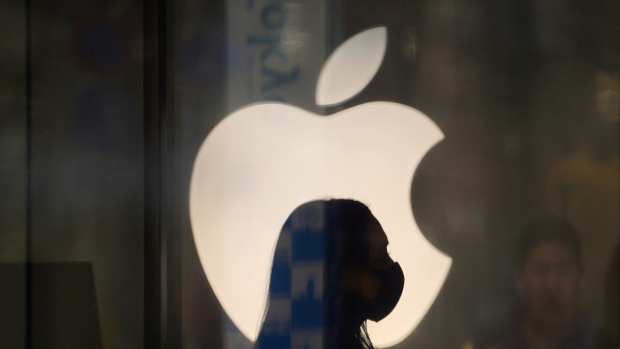Jul 13, 2020
Apple, Facebook Court Clashes Test EU Role as Global Rule Setter
, Bloomberg News

(Bloomberg) -- European Union judges in Luxembourg are set to sign off for the summer with two blockbuster rulings involving Apple Inc. and Facebook Inc. that could shape the EU’s growing leverage over the rules of global commerce.
First up on July 15 will be a judgment on the EU’s decision to slap a 13 billion-euro ($14.8 billion) Irish back-tax bill on the iPhone maker, in the biggest test to date of a wider EU crackdown on allegedly unfair fiscal pacts between governments and multinational companies.
The following day, the EU Court of Justice, the bloc’s highest tribunal, will issue a binding judgment that could potentially upend the legality of the key EU-backed tools used by companies to ship vast amounts of commercial data across the Atlantic without violating data privacy rules.
While the disputes are totally different, they both show how the EU is “a global player in technology governance and regulation,” said Angela Daly, a senior lecturer at the University of Strathclyde in Glasgow. What joins them “is the impact these decisions will have on trans-national business practices and the EU’s relationship with multinational companies.”
The rulings come as the EU seeks to bolster oversight of Silicon Valley tech giants, including Apple and Facebook, with a series of probes and new laws aimed at preventing internet platforms from abusing their market power and as privacy watchdogs in the EU start to use some of the world’s strictest data protections.
The EU General Court’s decision on Apple could empower, hamper or halt a series of other tax probes by EU antitrust chief Margrethe Vestager, after the first set of diverging rulings at the bloc’s second-highest tribunal.
Apple and Ireland are fighting Vestager’s decision in 2016 that the nation unfairly trampled on EU state aid rules designed to ensure fair play by allowing the tech company to pay far less tax than other businesses.
Apple’s fury at the tax bill led Chief Executive Officer Tim Cook to blast the EU move as “total political crap.” The company’s legal challenge claimed the EU wrongly targeted profits that should be taxed in the U.S. and “retroactively changed the rules” on how global authorities calculate what’s owed to them.
The U.S. Treasury weighed in too, saying the EU was making itself a “supra-national tax authority” that could threaten global tax reform efforts. President Donald Trump hasn’t been silent either, saying Vestager “hates the United States” because “she’s suing all our companies.”
‘Pushing the Boundaries’
Vestager’s competition officials at the European Commission in Brussels “appear to be pushing the boundaries of both state-aid law and transfer pricing law,” said Aisling Donohue, a partner with Andersen Tax in Dublin. “The most likely outcome is that the General Court will agree that there has been an aid, but will object to the methods used by the commission in calculating the aid.”
Apple pointed to earlier statements that it is the largest taxpayer in the world and during the period under review paid over $100 billion in corporate taxes alone, declining to comment further. Ireland’s finance ministry said it can’t prejudge the court’s decision.
Unlike the Apple judgment, which is expected to be challenged by the losers, the following day’s ruling can no longer be appealed after its long route to the pinnacle of the EU court system.
At issue are so-called Standard Contractual Clauses, and parts of the EU-U.S. Privacy Shield, the trans-Atlantic data transfer pact adopted in 2016 to replace a previous accord that was torpedoed by Austrian privacy activist Max Schrems.
The controversy stretches back to 2013, when former contractor Edward Snowden exposed the extent of spying by the U.S. National Security Agency.
‘Systemic Problem’
This time around, Schrems isn’t questioning the validity of the transfer clauses, but mainly takes issue with how regulators protect EU citizens’ data. It’s a “systemic” problem, he told EU judges in a court hearing.
And while this week’s case initially focused on Facebook and how its main privacy regulator in Europe -- the Irish Data Protection Commission -- acts to defend the interests of users, industry groups say the impact could resonate far wider than the U.S. social network.
“Many businesses -- especially bigger companies -- have started using more than one legal mechanism to transfer data to their customers and business partners,” adopting a “belt and suspenders” approach that relies on both tools, said Kate Goodloe, director of policy at the Business Software Alliance in Washington.
A ruling against both mechanisms would leave them “without much else,” she said.
The cases are: T-778/16 Ireland v Commission, T-892/16 Apple Sales International and Apple Operations Europe v Commission, C-311/18, Facebook Ireland and Schrems
©2020 Bloomberg L.P.





